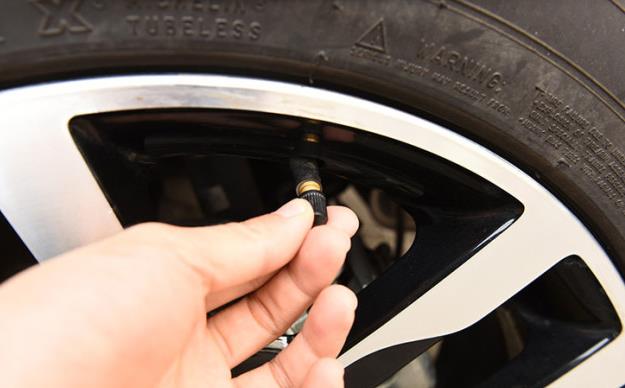TPMS Service and Why It Matters
If your vehicle was manufactured in the last 10 years or so, it likely has quite a few bells and whistles — dashboard warning lights, beeping sensors, automated computers, flashing alerts and more. One warning light that you may see more than you'd like is your Tire Pressure Monitoring System (TPMS) indicator, which illuminates when one or more of your tires is underinflated by at least 25 percent.
TPMS service is critical to keep your system in proper working order — and to keep you safe on the roads. Read more to find out if your vehicle has a TPMS, what you can expect from TMPS service checks and why it all matters.
Does My Vehicle Have a TPMS?
If you live in the United States and your vehicle was manufactured after September 1, 2007, chances are that it is equipped with a TPMS.
What's with the dates? In the year 2000, Congress passed the Transportation Recall Enhancement, Accountability and Documentation (TREAD) Act in response to a huge defective tire recall. Since then, all passenger vehicles, light-duty trucks without dual axles and buses under 10,000 must come equipped with a TPMS — and auto manufacturers are required to notify the NHTSA of all accidents involving alleged tire defects.
Still not sure if your vehicle has a TPMS? Your owner's manual will be able to tell you, or you can simply check your dashboard indicator lights upon starting your vehicle. Look for the TPMS warning light to illuminate — this light may look a bit like a horseshoe or a fishbowl with an exclamation point inside.
TPMS Service Checks
When you need TPMS service, be sure to always take your vehicle in to a certified professional. Whether you go to a tire store, an auto dealership, or an auto repair shop, make certain that you take your vehicle to a professional who has the latest tools and the highest expertise to service your particular make and model.
TPMS service checks may vary slightly per location, but the service professionals will be able to verify that your TPMS sensors and system are working properly and, if not, replace them.
The sensor in your TPMS includes a battery, and that battery does not have an indefinite life span. TPMS sensor batteries typically last anywhere from 5 to 10 years, so you can count on replacing that sensor at least once, depending on how long you own your vehicle.
As for how often to have your TPMS serviced, your best bet would be to make sure that it be checked every time you rotate or change your tires.
Why TPMS Matters
Having a properly functioning TPMS matters because it can help keep you safe and maximize both your fuel economy and your tires' lifespan. The TPMS will tell you if your tires are underinflated — an issue that can lead to vehicle instability, decreased time to fully stop and reduced gas mileage.
In fact, a report by the National Highway Traffic Safety Administration (NHTSA) estimated that<, in 2011, TPMS saved more than $510 million in fuel costs.

























